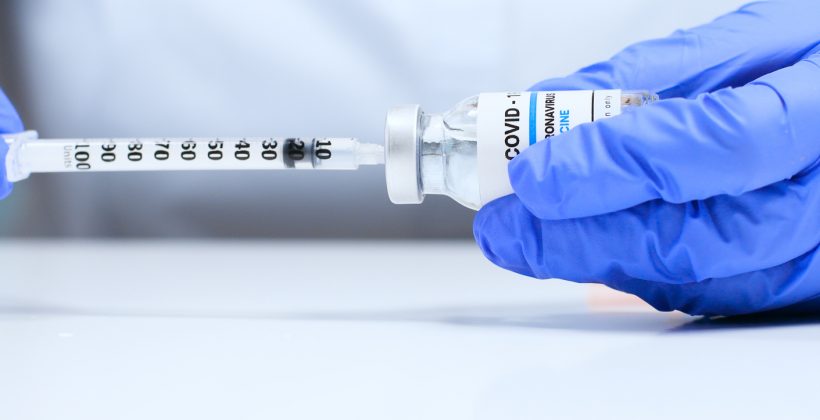Itad hosted a webinar on 15 April to explore how evaluation work can support greater vaccine equity.
The speakers included:
- Dr Mariângela Simão, WHO Assistant Director-General for Access to Medicines, Vaccines and Pharmaceuticals;
- Gian Gandhi, UNICEF COVAX Coordinator;
- Laura Craw, Senior Programme Manager, Monitoring, at Gavi, the Vaccine Alliance;
- Lois Chingandu, Director: Evidence & Influence, Frontline AIDS.
The discussion was moderated by Sam McPherson and also featured Itad consultants Marco Maragno and Pippa Page, who chaired the Q&A.
COVID-19 vaccine equity
UNICEF was engaged in the conceptualisation of COVAX with Gavi and the WHO, and now in practice, with the programme rolling out.
Gian said:
“When we were working on the design of COVAX, the idea was that it would negate the need for bilateral deals, but it hasn’t worked and we need to see why that hasn’t worked.
“We’re observing on the ground how countries are going against those plans in place. We’re starting to see emerging evidence with equity issues. The challenge is that what we see on the market-side in terms of access is difficult to measure as the information is not in the public domain. That’s driving inequity and is difficult to measure and monitor.”
While Mariângela asked:
“Is this scarce supply of vaccines we’re seeing real or skewed by bilateral agreements? We don’t really know the answer to that, as we collect data from different sources.
“Also, what’s happening in countries with vaccinating priority populations? For example, we’re seeing some countries are using doses to vaccinate their military.”
Laura agreed that cross-country equity, along with the question of pace remains a key issue.
She said:
“In terms of evidence, the learning agenda across countries is important in helping address key issues. We need to adapt our products as we go – for example in terms of learning, we’ve seen that short videos work better in some places rather than long briefs.”
Health systems under pressure
Lois highlighted the need to use evaluation work to understand where each country is in terms of their health systems and how quickly they can they move with the vaccines.
She said:
“I have heard from some countries that vaccines expired because they couldn’t distribute them quickly enough. Do governments know what they need in place to facilitate quick movement? I think this is an area where studies could help.
“What is the basic minimum of health systems we need for people to receive vaccinations?”
Working with real-time data
Some of the challenges highlighted by the panel were the importance of how to work effectively with multi-stakeholders in real-time.
Gian explained that there is a challenge with evaluation work, where access to real-time data from governments in the Global South can be challenging. To address these concerns, Gavi is undertaking a multi-stage evaluation of COVAX to help support this issue and to learn how to embrace some of the challenges of working with different types of data.
“In terms of in-country implementation monitoring, we need to facilitate real-time understanding of who is getting vaccinated”
Laura said:
“Are we succeeding in targeting higher-risk groups and do we understand why we’re seeing what we’re seeing?
“We need to evaluate end-to-end and think right through from design and process through to implementation and outcomes. Do we have the engagement mechanisms and the right stakeholders engaged in the design and governance? In terms of the allocation mechanism, how are we ensuring equitable access across countries?”
Asking the right questions
Mariângela explained that while the vaccines will help with the spread of COVID-19, we are currently seeing a repeat of previous mistakes from past viruses which we need to avoid.
She said:
“It helps to ask the right questions right now as they will help us.”
Lois also raised the importance of asking the right questions now. She highlighted the need to ask what mechanisms we can put in place to monitor and track the distributions of vaccines.
She also asked whether civil organisations should play a greater role in ensuring access to vaccines.
“How are we defining equitable distribution? And do we have a uniform definition of this, as without this are we then measuring different things?” she adds.
What is next?
The WHO is putting a treaty together for member states for next year’s World Assembly. Mariângela said:
“It helps as it then creates legal obligations for member states, which can help frame issues now and for future pandemics.”
While Sam concluded:
“We need to learn lessons now more than ever, as we can’t afford to learn these later down the line”.
Find out how we’ve been adapting and supporting our partners during COVID-19.
Watch this space for our upcoming blog that will reflect on some of the points discussed and questions raised in the webinar, and will share our latest thinking on vaccine equity.


